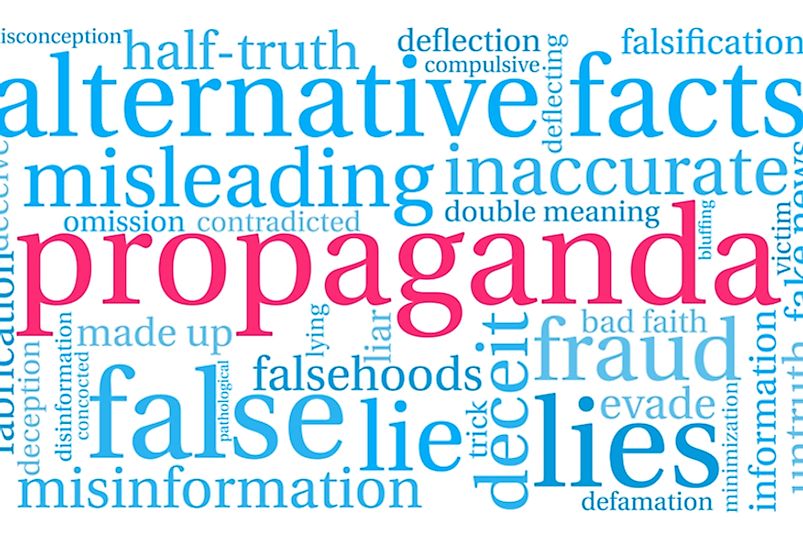What is Propaganda?

Propaganda is simply false information or ideas deliberately spread to a wide audience in order to further an agenda at the disadvantage of a section and to the advantage of an individual, group, party, institution, or country. For a long period in the history of the world, propaganda has played critical roles and shaped outcomes of conflicts and political contests. Just like advertising, propaganda “sells” ideas, mostly political. The word propaganda has an origin in the Latin language that means spreading ideas around. However, propaganda gained prominence as a means of spreading misleading political ideas during World War I. Though propaganda was just a neutral term, the last two centuries have seen it gain a manipulative meaning.
Characteristics of Propaganda
Propaganda is always full of bias and fashioned in a form that can easily deceive somebody into believing it, and therefore such a person abandons rational thinking and analysis for such information. In many cases, propaganda become useful in times of crisis to shift public opinion and make people believe what is not true. Often, it is hard to tell the credibility of the information or whether it is true or false as it is usually confusing and totally unfair, in fact, most people find out the truth long after the information has served its purpose. While active, propaganda complicates and prolongs disputes while entrenching negativity in the minds of the people. Coming in an emotive language, more institutions like government, media, and companies have increased the frequency of using propaganda. Propaganda spreads in different media, and the advent of new technologies has only acted to sophisticate and facilitate its spread.
Uses of Propaganda
In the modern society, propaganda is useful in national political contests as candidates try to turn electorates against opposing candidates so as to shift the vote in their own favor. Perhaps the most recent example is the just concluded US elections where, according to different sources, both the Democratic and Republican presidential candidates used media to pass their agenda. On one part, Democrats accused Republicans of lying about the Clinton Foundation and emails, whereas Republicans accused Democrats of being dishonest on current American President Donald Trump’s businesses and stand on immigration. Propaganda has previously featured prominently during wars to turn people against an enemy, real or perceived. With information of how evil the enemy is or how the war is fairing on, people used such information as a uniting factor or/and to advance their side’s strategy. National governments also use propaganda to make citizens believe some information while in dictatorships, there may be a strict censorship of any information that is contrary to government propaganda. Currently, advertisers have perfected the art of using propaganda to sell their products. Global propaganda reached its highest in during the Cold War period, although other notable examples include Britain’s propaganda against Germany during World War I as well as Germany and Poland during World War II.







